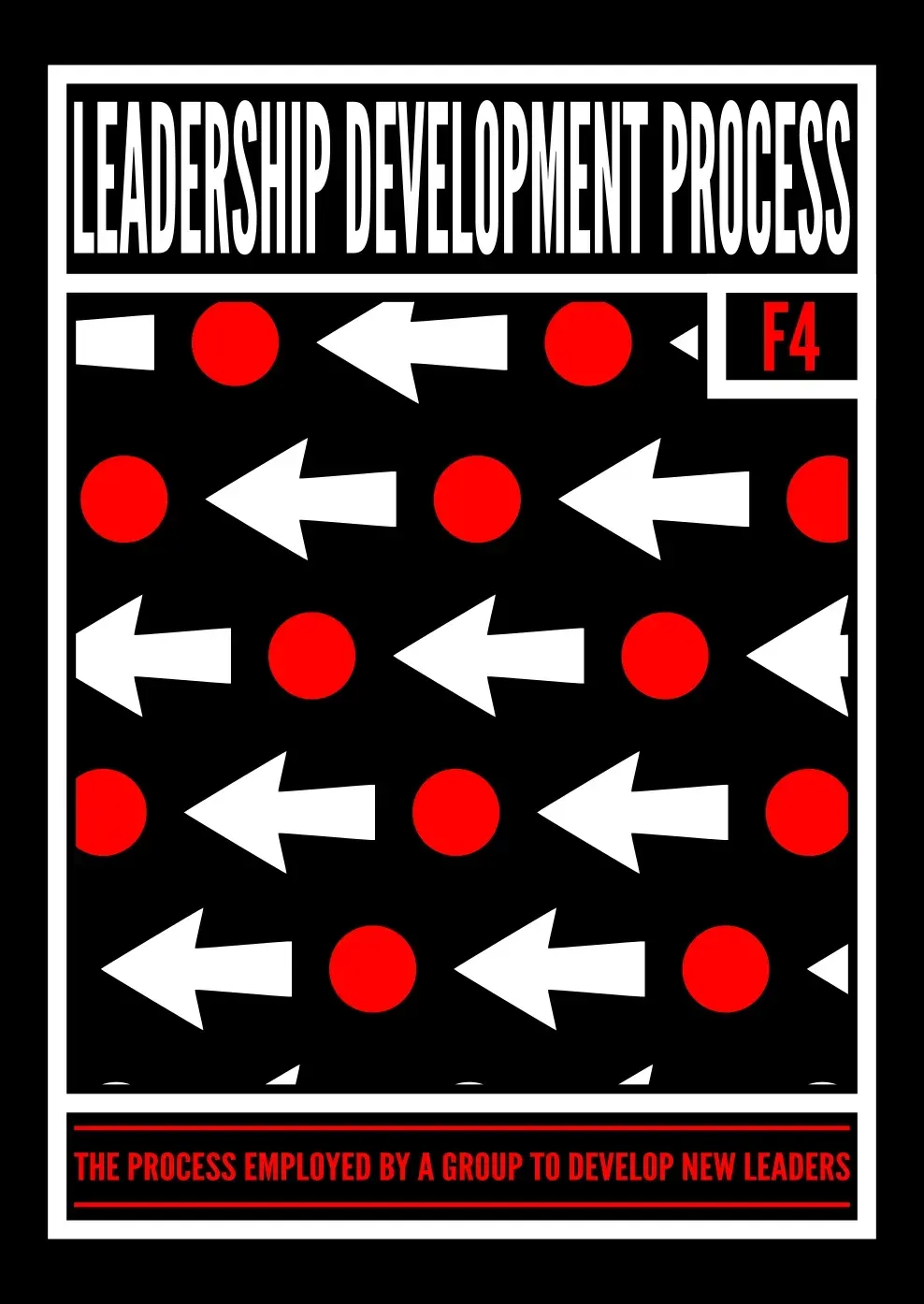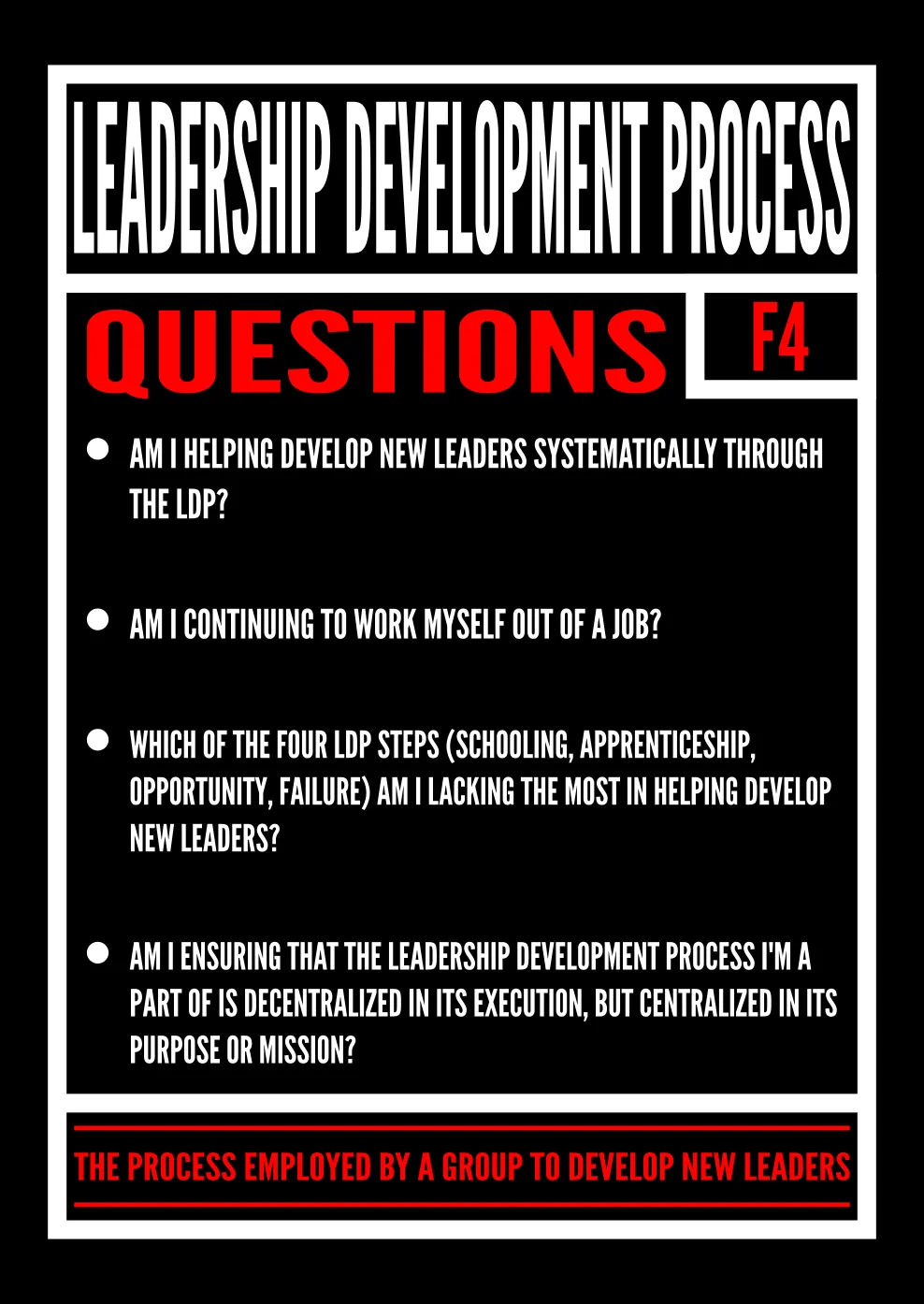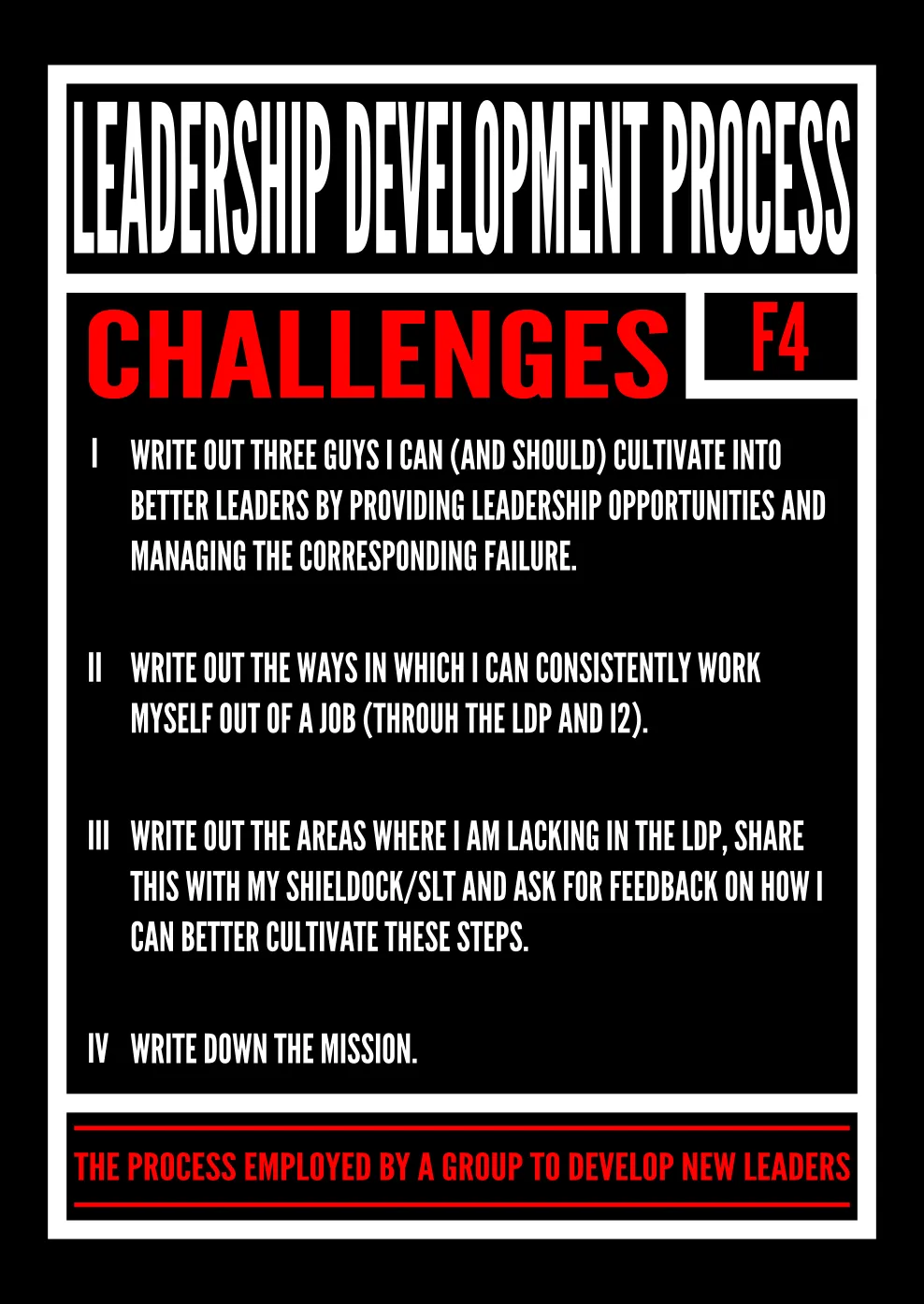LDP (F4)
The Process Employed By A Group To Develop New Leaders
Great Leaders develop new Leaders
While leadership is critical to all Groups, Leaders are always in short supply in most Groups because only a few Groups employ a systematic Leadership Development Process. What separates those few Groups from the rest is simple: they are led by great Leaders.
Great Leaders are intent on leaving a legacy that will resound to their Groups’ Advantage long after they have gone. Knowing their leadership tenure is limited by human mortality, they get prepared for the expected event of their departure by developing new Leaders. Because they cannot predict the precise time of their departure, they stay ready for the unexpected by ensuring that the Leaders they develop are ready right now instead of sometime tomorrow. Great Leaders are constantly working themselves out of a job.
Great Leaders develop new Leaders systematically, through an LDP that is tailored to the needs of the Groups they lead. They see this as a primary part of their responsibility as a Leader, not something they also do if they can find the time.
For great Leaders, developing new leaders is leadership, of the highest caliber.
The LDP has four steps: schooling, apprenticeship, opportunity and failure
Healthy Communities, Effective Organizations and dynamic Teams each employ some form of an LDP that is periodically adjusted to suit their unique need for Leaders and the manner by which they develop them. While every LDP reflects the purpose and character of the particular Group in which it is housed, every useful process has a form of the same four components:
– First there is some kind of Schooling , the didactic instruction that the potential Leader receives on the timeless fundamentals of leadership.
– The second component is Apprenticeship , where the new Leader is given the chance to develop the skills he learned from his Schooling under the watchful eye of a more experienced Leader.
– Third comes Opportunity , the chance for the growing Leader to put what he has learned into practice under conditions where he is directly responsible for the outcome. While Schooling + Apprenticeship creates a Leader with the potential to be Effective, Opportunity is the required element for the man’s skill to become kinetic and have actual impact on his Group.
– The fourth component is Failure . A Lizard uses its LDP to intentionally court minor disaster in order to fully develop its Leaders, because it is from Failure that Leaders learn the most. Success teaches far less because it does not isolate what works from what does not the way Failure does.
The LDP depends upon decentralized execution to a central purpose
F3 is an Organization whose purpose is to invigorate male Community leadership. Not surprisingly, since our Mission is leadership development itself, F3 needs a very deliberate Leadership Development Process to be Effective.
However, because the Organization is comprised of thousands of small Teams which are not in Proximity, that deliberate process cannot restrict the individual initiative and genius of its Leaders. We are absolutely dependent upon our great Leaders to be about the business of developing our new Leaders. The execution of the LDP is in their hands because it is their hands that are physically upon the new Leaders.
As a result, we do not dictate the precise manner in which our Leaders are to execute F3’s LDP but rather encourage and focus them upon our central purpose. They must know the why of the LDP before they can perform its what. Also, they must be affirmed in their efforts to be incentivized to continue them.
This model, decentralized execution toward central purpose, is not something unique to F3 or a theory that we invented. It is the LDP-methodology employed by the great Leaders of healthy Communities, Effective Organizations and dynamic Teams and always has been.
updated: 2025.03.10

Additional Study Materials
Socratic
Is a Leader born or made?
Are there common elements to leadership development?
Should the leadership development process be controlled from the top of an Organization?
Spur
Great Leaders develop new Leaders
The LDP has four steps: Schooling, Apprenticeship, Opportunity and Failur
The LDP depends upon decentralized execution to central purpose
Additional Resources




Facebook
Instagram
X
LinkedIn